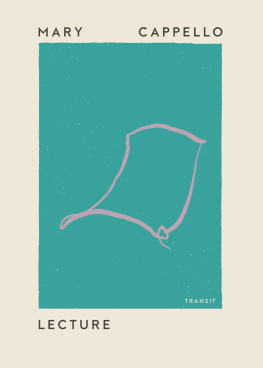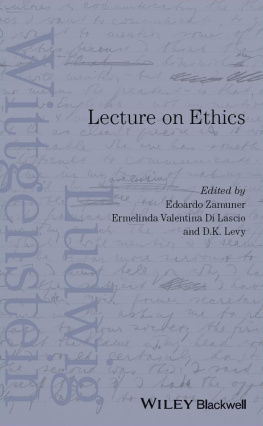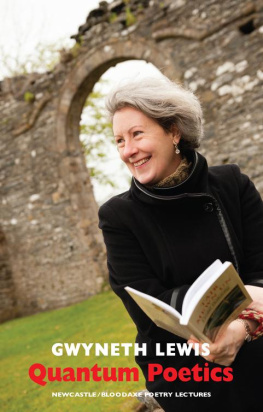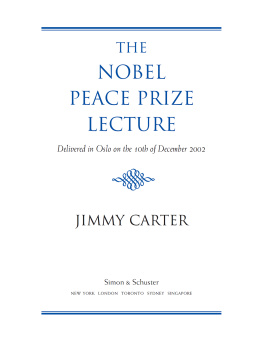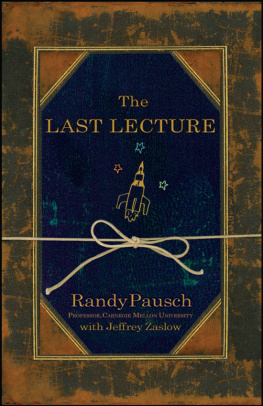
Table of Contents
Guide
Pages
Wittgensteins
Whewells Court Lectures
Cambridge, 19381941
From the Notes by Yorick Smythies
Edited, introduced and annotated by
Volker A. Munz and Bernhard Ritter
This edition first published 2017
2017 Volker A. Munz and Bernhard Ritter
Registered Office
John Wiley & Sons Ltd, The Atrium, Southern Gate, Chichester, West Sussex, PO19 8SQ, UK
Editorial Offices
350 Main Street, Malden, MA 021485020, USA
9600 Garsington Road, Oxford, OX4 2DQ, UK
The Atrium, Southern Gate, Chichester, West Sussex, PO19 8SQ, UK
For details of our global editorial offices, for customer services, and for information about how to apply for permission to reuse the copyright material in this book please see our website at www.wiley.com/wileyblackwell.
The right of Volker A. Munz and Bernhard Ritter to be identified as the authors of the editorial material in this work has been asserted in accordance with the UK Copyright, Designs and Patents Act 1988.
All rights reserved. No part of this publication may be reproduced, stored in a retrieval system, or transmitted, in any form or by any means, electronic, mechanical, photocopying, recording or otherwise, except as permitted by the UK Copyright, Designs and Patents Act 1988, without the prior permission of the publisher.
Wiley also publishes its books in a variety of electronic formats. Some content that appears in print may not be available in electronic books.
Designations used by companies to distinguish their products are often claimed as trademarks. All brand names and product names used in this book are trade names, service marks, trademarks or registered trademarks of their respective owners. The publisher is not associated with any product or vendor mentioned in this book.
Limit of Liability/Disclaimer of Warranty: While the publisher and authors have used their best efforts in preparing this book, they make no representations or warranties with respect to the accuracy or completeness of the contents of this book and specifically disclaim any implied warranties of merchantability or fitness for a particular purpose. It is sold on the understanding that the publisher is not engaged in rendering professional services and neither the publisher nor the author shall be liable for damages arising herefrom. If professional advice or other expert assistance is required, the services of a competent professional should be sought.
Library of Congress CataloginginPublication data applied for
Hardback ISBN: 9781119166337
A catalogue record for this book is available from the British Library.
Cover image: Ludwig Wittgensteins room in Whewells Court The Wittgenstein Archive
Cover design by Wiley
To the memory of Peg
Preface
I first met Rush Rhees when I came to Swansea as an exchange student in autumn, 1988. He allowed me join his PhD seminar, and from then on we saw each other regularly. That winter, Rhees spent some time in hospital, and I visited him almost every day to talk about Wittgensteins philosophy. The first day he was allowed out of bed, I saw him sitting in an armchair with Wittgensteins Philosophical Grammar on his lap. This made a great impression on me. After his discharge from hospital, Rhees and I continued our meetings at his home, where I first came into contact with his wife, Peg Smythies Rhees. She had been Yorick Smythies wife before marrying Rhees, after Smythies death, in 1980. From then on, I kept in close contact with Peg over the years until her own death in 2014.
Some time in the mid1990s, she gave me around 30 typescripts of lecture notes Smythies took during lectures held by Wittgenstein mostly between 1938 and 1941, all in all about 700 pages. Additionally, Peg signed over to me the rights to work on and publish these notes. In 1998, she engaged Bernard Quaritch, a London antiquarian, to sell Smythies original notes of Wittgensteins lectures, in sum about 2000 notebook pages, plus 23 tapes of recordings of the same material dictated by Smythies, based on those notes. Quaritch then got in contact with me and asked if I could make an inventory of the material. With respect to the notes, this was only possible because I already possessed the corresponding typescripts; the notes just by themselves were hardly legible. And since I owned the copyright, Quaritch allowed me to make photocopies of all the relevant notes and copy the tapes. All the other Smythies notebooks, manuscripts, and typescripts not directly related to Wittgensteins lectures, Quaritch sent to my private address in Austria.
In 2001, the original lecture notes were sold to Kagoshima International University, Japan, where they have been kept under wraps since then. A microfilm of the whole handwritten material is held by Trinity College Cambridge and myself. The microfilm had been made for legal reasons before the material was sold to Japan.
Through Peg Smythies Rhees, I also came into possession of a few items that shed light on Smythies personality, some of which are written by Wittgenstein. Since they have not appeared in print, I would like to include them here. When Smythies applied for a position as a librarian at Barnett House, in 1950, he collected various testimonials by Georg Henrik von Wright, G. E. Moore, Wittgenstein, and others. Wittgenstein wrote:
Mr. Yorick Smythies attended my classes on philosophy for over three years during the time when I was first lecturer and later Professor of Philosophy in Cambridge. I came into personal contact with him about eleven years ago and soon became greatly impressed by his mind and his personality. He is a man of very great intelligence, scrupulous honesty and conscientiousness, and of a kindly and obliging nature. He has a vivacious mind and is widely read. I have, in the last ten years, had innumerable discussions with him on a wide range of subjects and have always found his remarks most stimulating.
Already 10 years earlier in 1940, Wittgenstein had written his first reference for Smythies:
Mr. Yorick Smythies has attended my classes for four years; I have also had a great many discussions and conversations with him outside these classes. He has always impressed me by his uncommon intelligence as well as by his seriousness and sincerity. He is a kindhearted, gentle, and eventempered man.
Although Smythies had already joined Wittgensteins Lectures on Personal Experience in the academic year 1935/36, he only made his acquaintance in 1938 through James C. Taylor, another student. The most probable reasons for this delay are, on the one hand, Wittgensteins absence from Cambridge after Easter Term 1936, when his Research Fellowship expired, and Smythies young age, on the other. When Smythies began the Moral Science Tripos in 1935/36, he was only 18. In a draft of a letter to his mother, from 1938, he writes:
Dear Mama,
I have been having lectures from Wittgenstein nearly every day. He has been very good. Yesterday he lectured from 2p.m.7. Taylor asked him if he would meet me at lunch; he said he would come to lunch, but wouldnt meet me. I dont think he likes the look of me very much.
In the last decade of his life, Smythies prepared his own notes for publication and made various attempts to get them published. He also wrote an introduction to the notes in which he defends an austere editorial approach:
Next page

